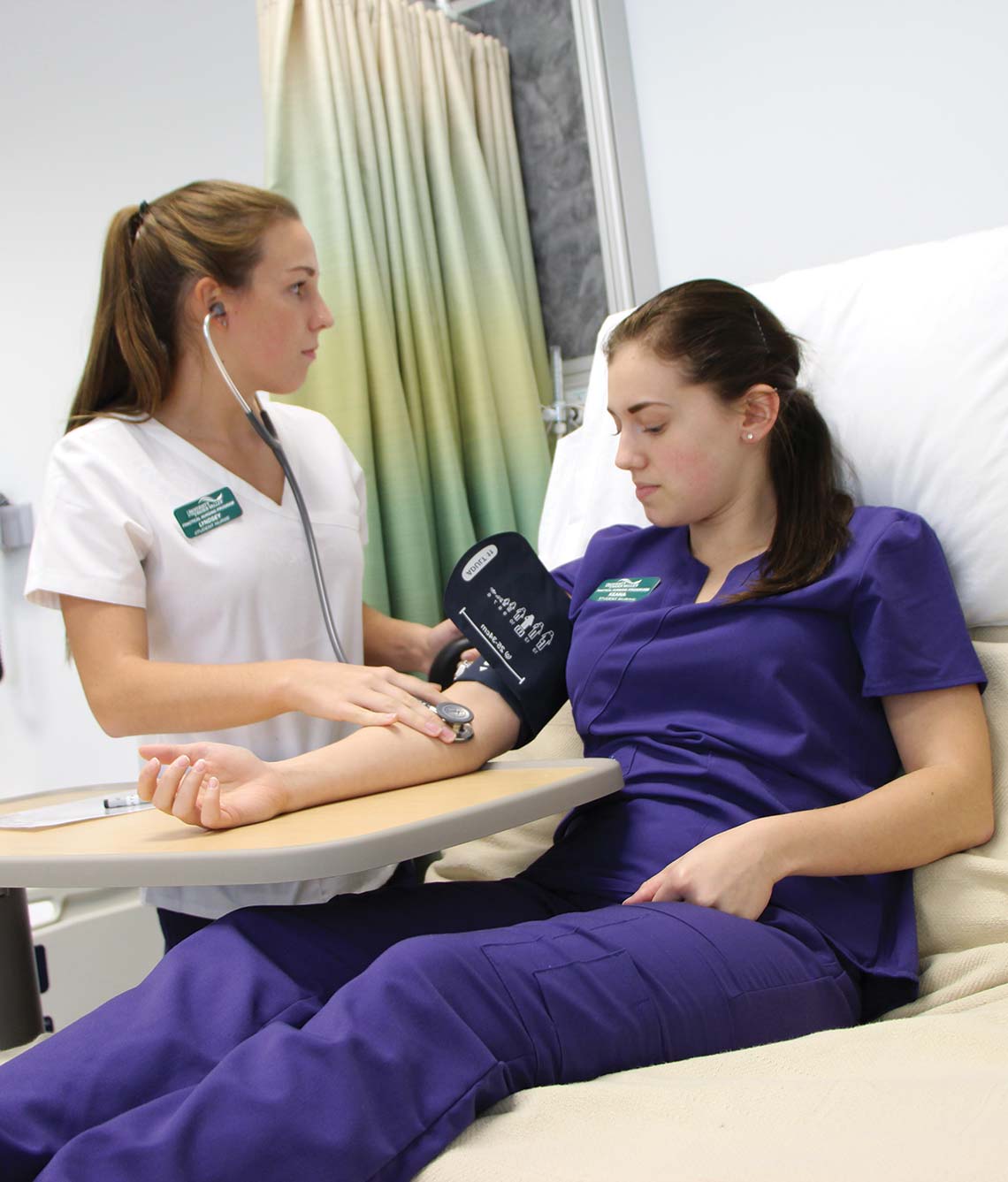Discovering LPN Jobs In Daytona Beach: Your Path To A Caring Career
Detail Author:
- Name : Gerson Leannon
- Username : krystina.ullrich
- Email : deven44@denesik.com
- Birthdate : 1997-04-23
- Address : 6934 Kozey Overpass Apt. 602 Lake Heathertown, DE 14836-0501
- Phone : 505.713.3850
- Company : Mosciski Inc
- Job : Packer and Packager
- Bio : Sint numquam nam voluptas minus soluta minima vitae. Amet necessitatibus exercitationem facilis voluptatem. Asperiores ut quas odit dolores quia esse debitis. Aut eius pariatur qui animi.
Socials
facebook:
- url : https://facebook.com/richard_nader
- username : richard_nader
- bio : Pariatur velit ab quidem necessitatibus eum consectetur enim.
- followers : 3329
- following : 398
linkedin:
- url : https://linkedin.com/in/richardnader
- username : richardnader
- bio : Voluptatibus hic a enim iusto fugit enim qui.
- followers : 5628
- following : 2024
instagram:
- url : https://instagram.com/richard.nader
- username : richard.nader
- bio : Id dolor quia et ut ad saepe illo. Sed distinctio earum sed vel.
- followers : 6227
- following : 120
tiktok:
- url : https://tiktok.com/@naderr
- username : naderr
- bio : Ducimus tempore architecto eaque rerum. Corrupti id velit sed voluptatem.
- followers : 1737
- following : 2590
Are you thinking about a meaningful career where you help people every single day? Perhaps you've heard about nursing, and maybe you're curious about what it really takes to be a part of it. Well, if you're looking for LPN jobs in Daytona Beach, you're looking at a wonderful chance to make a real difference in people's lives, and it's a path that is, in a way, very much needed right now. This area, with its lovely coastal vibe, offers a warm welcome to those ready to step into a healthcare role, and there's a good amount of work available for licensed practical nurses.
For many folks, the exact difference between a licensed practical nurse (LPN) and a registered nurse (RN) isn't always clear, you know? Both types of nurses certainly allow for a very fulfilling career in helping others, and they both play such important parts in patient care. It’s just that their training and daily duties can be a little different, and that's something worth understanding as you consider your options.
This article aims to shed some light on what it means to be an LPN, especially if you're thinking about finding LPN jobs in Daytona Beach. We'll talk about the sorts of things LPNs do, what you need to do to become one, and what your future might look like in this very rewarding profession. So, if you're ready to explore a caring role that is, quite honestly, in growing demand, then stick around.
Table of Contents
- Understanding the LPN Role in Healthcare
- Becoming a Licensed Practical Nurse: Your Steps
- Career Prospects for LPN Jobs in Daytona Beach
- Frequently Asked Questions About LPN Careers
- Starting Your LPN Career in Daytona Beach
Understanding the LPN Role in Healthcare
When you consider a career in nursing, it's pretty common to wonder about the different paths you can take. A licensed practical nurse, or LPN, is a healthcare professional who provides basic nursing care, and they do this under the watchful eye of a registered nurse or a doctor. In some parts of the United States and Canada, these caring individuals are called licensed vocational nurses, or LVNs, but the work they do is, more or less, the same.
This role is incredibly important in keeping healthcare running smoothly. It’s a direct care position, meaning you’ll be right there with people who are sick, or maybe injured, or even those who are just getting better after an illness or operation. They also help people who have long-term health conditions. It’s a very hands-on kind of job, and it’s about making sure patients feel comfortable and well cared for, you know?
What an LPN Does Every Day
So, what exactly does an LPN do on a typical day? Well, licensed practical nurses help with a lot of really important tasks. They are often the first point of contact for patients when it comes to routine checks. For instance, they help in checking vital signs, which includes things like temperature, pulse, and respiration. They also take blood pressure readings, which are, quite frankly, essential for monitoring a patient's health.
Beyond these regular checks, LPNs might also help patients with their personal care, like bathing and dressing, and they often help with feeding, too. They keep an eye on how patients are doing, making sure to report any changes to the supervising nurse or doctor. This kind of observation is, actually, a big part of their role, as it helps the whole care team understand how a patient is progressing. They might also give certain medications, change bandages, or help with other treatments, all while keeping careful records of everything they do. It’s a varied role, and it certainly keeps you busy.
LPN Versus RN: Making Your Choice
If you're thinking about becoming a nurse, one of the first choices you'll face is what kind of nurse you should be, you know? As we talked about a little bit earlier, both LPNs and RNs are vital to healthcare, and both allow for a truly fulfilling career in nursing. The main differences really come down to the amount of training needed and the scope of practice.
Becoming an LPN involves less time and expense than becoming a registered nurse. This means you can get into the healthcare field and start helping people sooner, which is, in some respects, a big plus for many individuals. LPN programs are generally shorter, often lasting about a year, while RN programs can take two to four years, depending on the type of degree. So, if you're looking for a quicker way to begin your nursing career, the LPN path might be a very good fit for you.
The responsibilities also differ slightly. An LPN provides basic nursing care under supervision, focusing on direct patient care tasks. An RN, on the other hand, has a broader scope, often taking on more complex patient assessments, creating care plans, and supervising other nursing staff. Both are incredibly valuable, but the LPN role is a great way to start, or even build, a solid foundation in nursing, especially if you're exploring LPN jobs in Daytona Beach.
Becoming a Licensed Practical Nurse: Your Steps
So, you're feeling good about the idea of becoming an LPN, and maybe you're picturing yourself working in Daytona Beach. That's great! The path to becoming a licensed practical nurse is pretty clear, and it involves a couple of key steps. It's not something you can just jump into, but the process is, actually, quite manageable if you're committed.
Training and Education for LPN Work
To become a licensed practical nurse, you must complete an LPN training program. These programs are offered at vocational schools, community colleges, and some hospitals. They usually include a mix of classroom learning and hands-on clinical experience, which is, obviously, super important for learning how to care for people in real-life situations. During your training, you'll learn about anatomy, physiology, pharmacology, and, of course, nursing fundamentals. You'll practice things like giving injections, dressing wounds, and communicating with patients and their families.
The practical experience you get during these programs is, quite literally, where you put all your classroom knowledge to work. You'll spend time in hospitals, nursing homes, or clinics, working with real patients under the guidance of experienced nurses. This hands-on part helps you build confidence and get comfortable with the day-to-day tasks of an LPN. It’s a very practical education, and it sets you up well for the actual job.
Getting Your LPN License
After you finish your LPN training program, the next big step is to pass a licensing test. This exam is called the NCLEX-PN, and it's what proves you have the knowledge and skills needed to practice safely as an LPN. You must be licensed and registered by your state's education department or nursing board to practice nursing as an LPN or even refer to yourself as one. For example, the text mentions that in New York, you must be licensed and registered by the New York State Education Department (NYSED) as a licensed practical nurse (LPN) to practice nursing as an LPN or refer to yourself as such. While Daytona Beach is in Florida, the principle is the same: you'll need to meet Florida's specific licensing requirements.
Each state has its own rules, but the general idea is that you complete an approved program and then pass the national exam. This license is your official permission to work as an LPN, and it shows that you meet the professional standards. It’s a very important step, and passing that test is a big moment for anyone pursuing this career.
Career Prospects for LPN Jobs in Daytona Beach
Pursuing a career as a licensed practical nurse offers the opportunity to make a truly meaningful impact by helping others. It’s a rewarding profession with growing demand, and it often comes with flexible scheduling options, which is, in some cases, a big plus for work-life balance. When you think about LPN jobs in Daytona Beach, you're looking at a location that has a steady need for healthcare professionals, given its population and the number of visitors it welcomes.
Where LPNs Find Work in Daytona Beach
LPNs work in a wide variety of settings, which is, frankly, one of the great things about the job. In Daytona Beach, you'll find opportunities in places like:
- Hospitals: These are often busy environments where LPNs help with patient care on various units.
- Nursing Homes and Long-Term Care Facilities: Many LPNs work here, providing ongoing care for residents who need assistance with daily living and medical needs.
- Assisted Living Facilities: Similar to nursing homes, but often for residents who are a bit more independent but still need some help.
- Home Healthcare Agencies: LPNs can visit patients in their own homes, providing personalized care and support. This offers a different kind of patient interaction, which can be very fulfilling.
- Clinics and Doctor's Offices: These settings often involve more routine patient visits, helping with check-ups, immunizations, and minor procedures.
- Rehabilitation Centers: Here, LPNs assist patients recovering from injuries, surgeries, or illnesses, helping them regain strength and independence.
The range of places you can work means you have options to find a setting that fits your personality and your career goals. It's not just hospitals; there are, like, so many different places where your skills will be valued.
The Demand for LPNs in the Daytona Area
The demand for licensed practical nurses continues to be quite strong, and this is true for areas like Daytona Beach, too. As the population grows older and the need for healthcare services increases, the role of the LPN becomes even more important. This means that if you're looking for LPN jobs in Daytona Beach, you're likely to find a good number of openings and opportunities. It's a field that has, actually, been seeing steady growth for some time now.
The flexible scheduling mentioned earlier is also a big draw for many. Some LPN positions offer part-time hours, or different shifts, which can be really helpful if you have other responsibilities or just prefer a varied schedule. This kind of flexibility can make a nursing career even more appealing, and it's something many employers in the Daytona Beach area will consider. Learn more about nursing career paths on our site, and you can also find out more about healthcare opportunities in the region.
The steady need for LPNs also suggests good job security. When you choose a career with consistent demand, you're choosing a path that offers stability, which is, you know, a very comforting thought for anyone starting out or looking for a change. You can explore general information about nursing roles and demand by checking out resources like the U.S. Bureau of Labor Statistics for nursing and healthcare occupations, which provides, in a way, a broad picture of the field.
Frequently Asked Questions About LPN Careers
People often have a few common questions when they start looking into LPN careers. Here are some answers to things you might be wondering, based on what people often ask:
What's the main difference between an LPN and an RN?
The main difference really comes down to their training and the scope of their work. An LPN completes a shorter program, usually about a year, and provides basic nursing care under the supervision of an RN or doctor. An RN goes through a longer program, two to four years, and has a broader set of responsibilities, including more complex patient assessments and care planning. Both are vital, but the LPN role is a great entry point into nursing, offering a quicker path to getting started.
What are the typical duties of an LPN?
LPNs perform many essential tasks. They often check vital signs like blood pressure and temperature, help patients with personal care such as bathing and dressing, and assist with feeding. They also monitor patients' conditions, report changes to the nursing team, and may administer certain medications or perform basic medical treatments under supervision. It's a very direct and hands-on role in patient care.
How long does it usually take to become an LPN?
Becoming an LPN generally takes less time than becoming an RN. Most LPN training programs can be completed in about one year. After finishing the program, you then need to pass a national licensing exam, the NCLEX-PN, to get your license. So, you could be working as an LPN in about a year to a year and a half, which is, in some respects, pretty fast for a professional healthcare career.
Starting Your LPN Career in Daytona Beach
If you're feeling drawn to a career where you truly help others, and you like the idea of working in a place like Daytona Beach, then becoming an LPN could be a very good fit for you. It's a profession that offers a real chance to make a difference, and it’s one with steady opportunities, especially in a growing area. The path is clear: complete your training, get your license, and then you're ready to start looking for those LPN jobs in Daytona Beach that are, you know, waiting for skilled and caring individuals just like you.
The demand for LPNs is quite consistent, and this means you'll find a welcoming job market in the Daytona Beach area. Whether you're just starting your journey into healthcare or you're looking for a new place to practice your skills, the opportunities for licensed practical nurses are certainly there. It's a rewarding profession with flexible possibilities, and it's a great way to contribute to the well-being of the community. So, if you're ready to take that step, Daytona Beach is, actually, a fine place to begin your LPN career.

How to Become a Licensed Practical Nurse (LPN)

Licensed Practical Nurse

Practical Nursing - University of the Fraser Valley (UFV)